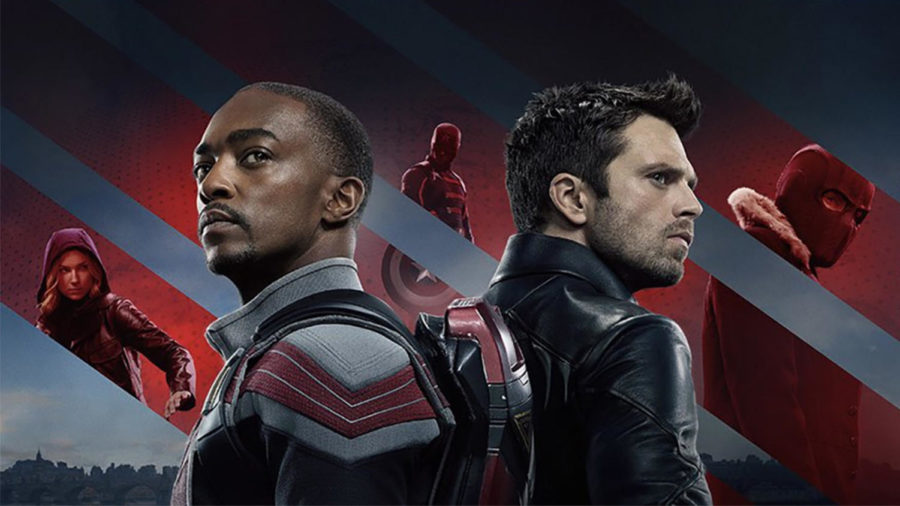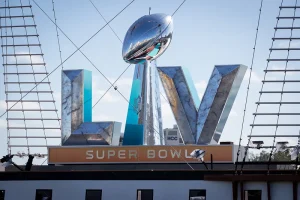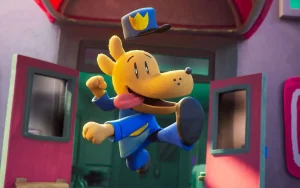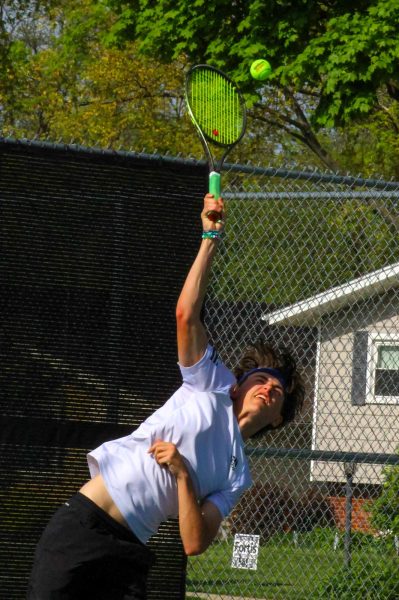THE FALCON AND THE WINTER SOLDIER REVIEW: FIGHT OR FLIGHT
April 25, 2021
“The Falcon and the Winter Soldier” is most certainly a Marvel property. After so long since a “proper” Marvel release (that being “Spider-Man: Far From Home”), it feels almost reassuring to fall back onto the familiarity of the choppy fight sequences, unnecessary one-liners and self-indulgent references that populate this new Disney + series and so many other MCU installments.
I can see plenty of people being disappointed with this long-overdue return to form; after “WandaVision” took Marvel in such a new and unexpected direction just weeks earlier, this series, which I had originally seen as the “safe bet” of Marvel’s 2021 lineup, became more of a way to tide me over until “Loki” releases.
Now, there’s nothing wrong with a safe bet. That is, after all, how you win money, leading to more betting, and more betting, until you eventually spiral into a deep hole of debt and gambling addiction, or in this case, a 23-film mega franchise.
I don’t blame many people for not watching this show; outside of the fact that “WandaVision” was far more unique and innovative, on a purely surface level, watching a mutant witch and a synthezoid is far cooler than a guy with a metal arm and another with a glorified jetpack.
The main duo, who have been promoted from little more than Captain America’s sidekicks to full-fledged characters, are equally fun now that they’re allowed more than 15 minutes of total screen time. The chemistry the two share is particularly enjoyable, and they compliment each other well considering how their dialogue is often the opposite of complimentary.
Disappointingly, much like “WandaVision,” the cast of side characters is shuffled in and out frequently, even though it is admittedly more natural here because the plot isn’t concentrated in just one location.
The overall pacing and structure of the show is, in some ways, where “The Falcon and the Winter Soldier” beats out “WandaVision” handily. The six-episode arc consists of roughly 50-minute installments, which gives each episode much more breathing room and cohesiveness, rather than “whatever we can fit in 30 minutes” as was many times the case in “WandaVision”.
However, the driving plotline is not particularly inventive (at times it felt comparable to a Marvel-ified Tom Clancy show), though it does dive into more of that sweet, sweet post-Endgame world building we’ve been getting in recent MCU installments.
I will admit that this sort of storyline is beginning to wear a bit thin, but the show does find a unique angle to take. And while I admit I never expected to watch a series focused on the geopolitical effects of the actions of a fictional purple alien, it feels logical considering the characters’ backgrounds and skill sets.
These skills are put to surprisingly good use in most fight scenes, which, despite being occasionally hard to follow, actually held my attention well considering how blasé I was expecting them to turn out.
Much of the camerawork is also undoubtedly some of the MCU’s best, and the variety of shots did wonders for keeping things fresh even when the plot itself was stagnant.
The series finale boasted especially fun scenes, and unlike “WandaVision,” a large-scale battle felt justified, which is part of the reason why “The Falcon and the Winter Soldier” was able to win me over in the end.
Allow me to explain myself: “WandaVision” was a fun and unique concept that had to be squeezed through the Marvel formula; “The Falcon and the Winter Soldier” is a very typical Marvel show, allowing it to branch out more seamlessly and ultimately, less disappointingly.
Now, it might seem unfair of me to compare these two wildly different series so heavily. But, because of my many preconceptions about “The Falcon and the Winter Soldier” were based on “WandaVision”’s success, it only feels fair, and in retrospect the two shows are more evenly matched than it would first appear.
“The Falcon and the Winter Soldier” deals, among other things, with ideas of responsibility and the meaning of symbols, a story thread that I enjoyed far more than I could have expected. It plays into all aspects of the plot, from personal standout John Walker, the replacement Captain America who quickly struggles under the weight and expectations of the mantle, to the returning Baron Zemo, who almost single-mindedly hates those who act as symbols, concurrent with his personal experiences.
This approach to characters might be labeled one-dimensional, but I was personally so drawn to this particular plotline that I didn’t mind as it breathed new life into the familiar characters.
Using the well-established Captain America mythos to tell this story was another brilliant decision. The legacy of Steve Rogers looms at the heart of the story, as it should for a character who was such a driving force in the MCU of lore.
It’s clear at times that the famous shield can weigh down on the person carrying it even more than even Mjolnir itself, which brought just the right amount of emotional conflict and took the story places I never knew I wanted to see.
The show has many problems, sure. But just because it isn’t a mind-bending subversion of expectations doesn’t mean it isn’t worth your time; if that was the case then half of the MCU would have already flopped.
I won’t sit on my high horse and verbally assault anyone who doesn’t agree with me like I might for other movies, but I can’t bring myself to dislike it too strongly; if we’re honest with ourselves, it’s still of more substance than “The Mandalorian,” for crying out loud.
I might just be fooling myself into thinking of this show as more than just “another Marvel property,” but “The Falcon and the Winter Soldier” surpassed my already-low expectations in ways that gave me increased appreciation for the characters and built a flawed, but solid backdrop for the MCU’s future, and that has to be worth something. And, hey, I never said self-indulgent references were a bad thing.























































































